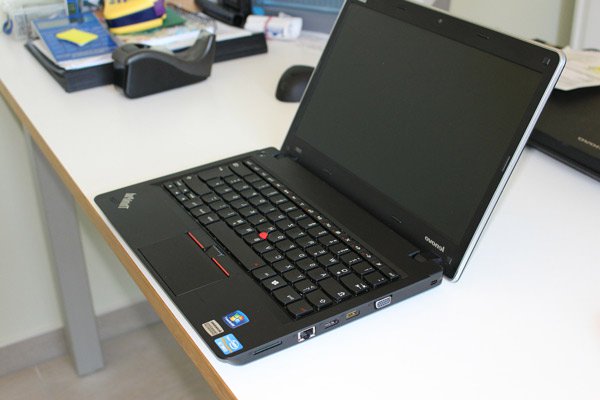 Being able to streamline and standardize the deployments of new laptops and desktops in your business’ environment will greatly increase the efficiency of your IT team.
Being able to streamline and standardize the deployments of new laptops and desktops in your business’ environment will greatly increase the efficiency of your IT team.
Many small businesses will buy workstations with OEM licensed operating systems. From there, IT employees must remove the bloatware, install the necessary applications, add the PC onto the domain, and provision the device with security features.
With such a tedious and cumbersome process, you’re probably wondering, “Is“Is there a way to standardize these system deployments?”
The “Clean” way to mass deploy operating systems in a large corporate environment is to use a suite such as Microsoft System Center and Configuration Manager (SCCM). Unfortunately, the clean method of deploying operating systems can be costly and impractical for many small to medium sized enterprises (SMEs). How exactly can SMEs gain an edge?
#1.) Script Your Solutions Using PowerShell
Every system administrator needs to understand how to use Microsoft PowerShell. Forgive the pun, but PowerShell may be the most powerful tool in a Windows System Administrator’s repertoire.
If there is a specific task that you must do over and over on each new PC that you inbound, consider exploring a solution for this task using PowerShell. An example of a task that you can streamline with PowerShell is assigning user rights on a machine and adding the machine onto your domain. You could also write more robust scripts that remove specific bloatware titles from the specific model of computers that you are buying for the office.
Anything that you can do in Windows with keystrokes and the click of a mouse can likely be achieved using a PowerShell script.
#2.) Beef Up Your Group Policies
Windows Group Policies can help standardize system deployments because as soon as a Group Policy Object (GPO) is placed on the PC’s organizational unit, the computer must behave with the group policies that your IT group has assigned.
Common group policies include those that govern Windows Firewall, Internet Explorer, and the actions an end user can perform on the desktop. Group Policy in Windows Server 2012 R2 will give your IT team the ability to configure OneDrive for your entire organization.
If your business currently uses Office 365, the OneDrive enhancement might prove to be a game changer for your business. If your enterprise is not allowed to use cloud storage, group policy allows you to turn these features off, ensuring that your enterprise’s data never gets uploaded into the cloud.
Every aspect of the Windows desktop computing environment can be locked down using group policy. You could even use group policy as a deployment method, by assigning group policy objects (GPO) to a new organizational unit called “Deployments.” Once this is created, you can edit the GPO to automatically install software upon a reboot.
Simply do a “gpupdate/force” from the command line and reboot the PC if necessary, and when the PC comes back on, the new software will be installed. You can then move the PC to a production based organizational unit after the software deployments have completed.
#3.) Consider Using 3rd Party Tools
Many 3rd party tools for systems deployments operate on the “freemium” model. This gives users basic features, while requiring them to pay for more advanced features.
One popular software title fits this bill is called PDQ Deploy, which is produced by AdminArsenal. Organizations can deploy software using PDQ Deploy’s free features, but the paid features unlock several unique options which help your organization stay up-to-date on all of the critical patches for the apps present within your enterprise.
Most organizations can get by with the free version. If you have a PowerShell wizard on your team, you can configure PDQ Deploy to run a series of scripts on a remote machine that will prep the machine for deployment.
Using 3rd party tools, your organization can gain an edge in the time it takes to roll out new hires into the production floor. This saves effort and energy on the part of your IT staff while simultaneously providing a direct benefit for the business.
Why Your Organization Should Automate System Deployments Today
When your organization develops automated methods of rapidly deploying new PCs and laptops to end users, your business can feel confident about projecting a positive image of the IT team and the organization as a whole by having everything setup correctly for your new hire as soon as they hit the floor.
Furthermore, automated deployments reduce the margin for error while simultaneously providing the benefit of having a chain of custody when it comes to executing tasks.
Audit trails can be generated on each of your new hire deployment automations, documenting each and every action that the scripts try to execute. If one portion of this process fails to execute, your team can troubleshoot that issue on a case-by-case basis.
For organizations that embrace automatic PC deployments, the benefits can be realized immediately. Both managers and end users will be impressed with your IT staff’s ability to rapidly deploy new hardware to end users in a unified and predictable manner.
While we offer a variety of support plans for companies that require regular security and maintenance, we like to work closely with local Greenville, SC or Atlanta, GA area businesses like yours to help develop their technology and grow their business however they see fit. Our level of involvement can evolve your business. Just give us a call at (864) 248-6316 or click the banner below to get the IT support you need now!
If you enjoyed this IT Support article, please check out other posts on our blog and join us on Facebook, Twitter, and LinkedIn to see how else we can help your Greenville, SC or Atlanta, GA area business succeed!

